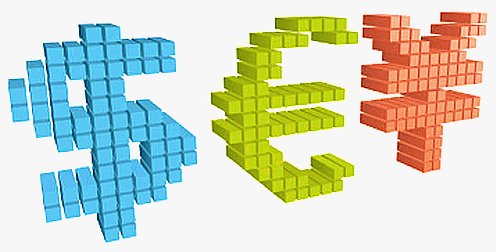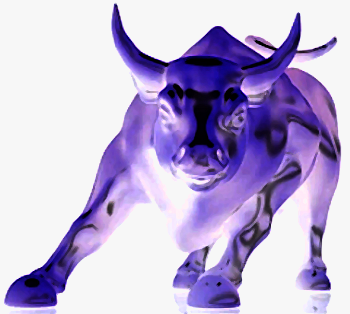Accredited InvestorsAltcoinAnatoli UnitskyAnti-Money Laundering (AML) In CryptoAPIArbitrageArtCoin TokenArticle DirectoryASICAuction Terminology GlossaryBasics of Stock Market InvestingBear MarketBest Crypto Payment Provider In the WorldBitcoinBlockchainBlockchain ConfirmationBlockchain Consensus MechanismBlockchain ForkBlockchain GlossaryBored Ape Yacht ClubBuild a Business That OutperformsBull MarketBuying SkyWay SharesByzantine Fault Tolerance (BFT) ExplainedCasascius CoinCentral Bank Digital Currency (CBDC)Centralized Crypto ExchangeCoinCoinsetCold WalletCollateralCommodity Futures Trading Commission (CFTC)Cross-Chain TechnologyCRUCrypto ExchangeCrypto GlossaryCrypto JokesCrypto Terms to KnowCrypto TickerCryptocurrencyCryptographyCryptojackingCryptounit BlockchainCryptounit GlossaryCryptounit ProgramdApp (Decentralized Application)Dead CoinDecentralized Exchange (DEX)Decentralized Finance (DeFi)Difference Between Bitcoin and EthereumDifferent Ways of Investing MoneyDigital CurrencyDistributed LedgerDo Your Own Research (DYOR)Dollar Cost Averaging (DCA)Dow Jones Industrial Average (DJIA)EncryptionERC-20ERC-721EthereumEvoScentFear Of Missing Out (FOMO)Fear, Uncertainty and Doubt (FUD)Fiat MoneyFNT Fintech CompanyGenesis BlockGlobal Unit PayGlossary of Banking TermsGlossary of Business TermsGlossary of Financial TermsHalvingHODLHot WalletHow Do I Start InvestingHow Rich is Satoshi Nakamoto?How to Create a BlockchainHow to Find Private InvestorsHow to Get Into FintechHow to Program Smart ContractsI Am Thrilled to Be a Part of This Global ProjectInitial Coin Offering (ICO)Initial Public Offering (IPO)Initial Token Offering (ITO)Innovation Basalt TechnologyInnovative Transportation TechnologiesInternational Bank Account Number (IBAN)Investing in Gold Mining StocksInvesting in Gold MiningJagerJoy of Missing Out (JOMO)Know Your Customer (KYC)LedgerLiquidity in CryptocurrencyMaker and Taker Fees in Crypto TradingMarket Capitalization (Market Cap)Meme CoinMetal Credit CardMetaMaskMillenials Now Have Access to Generational WealthMy Best Investment EverNew Digital EvolutionNFT GlossaryOff-Chain TransactionsOn-Chain TransactionsOpen Edition NFTPeer-to-Peer (P2P)Personal Loan GlossaryProbably the Best STO on the MarketProof of Stake (PoS)Real Estate Glossary of TermsReal Estate Investing GlossaryRebase TokenSecurities and Exchange Commission (SEC)Security Token ExchangesSecurity Token Offering (STO)Soulbound Decentralized Identities for Security TokensSoulbound ID Launch by Stobox Proves a SuccessSoulbound TokensStoboxStock Market GlossaryTestimonialsTether Platform and Token (USDT)UnitEx ExchangeUnitsky String TechnologiesUNTBUSDUValidatorWe Started Investing When We Were 25What are Blue Chip NFT?What are Blue Chip Stocks?What are Crypto Assets?What are Crypto Smart Contracts?What are CryptoPunks NFT?What are Digital Assets?What are Digital Collectibles?What are Gas Fees?What are Gas Wars?What are Hashmasks?What are Non Fungible Tokens?What are Non-Sufficient Funds (NSF)?What are Soulbound Tokens (SBT)?What are Stablecoins in Crypto?What are Transactions Per Second (TPS)?What are Utility NFTs?What are Utility Tokens?What Does Burning Crypto Mean?What Does Diamond Hands Mean?What Does Paper Hands Mean?What Does To The Moon Mean?What Does WAGMI Mean?What Happened to Satoshi Nakamoto?What is a 51% Attack?What is a Baby Boomer?What is a Backlink?What is a Banner?What is a Barcode?What is a Bid-Ask Spread in Crypto?What is a Block in Blockchain?What is a Block Reward?What is a Blockchain Address?What is a Blockchain Node?What is a Blockchain Oracle?What is a Blog?What is a Bond?What is a Bot?What is a Broker?What is a Business Accelerator?What is a Cash Cow?What is a Commercial Bank?What is a Commodity?What is a Con?What is a Credit?What is a Credit Limit?What is a Credit Rating?What is a Crypto Airdrop?What is a Crypto Bridge?What is a Crypto Scam?What is a Crypto Token?What is a Crypto Wallet?What is a Crypto Whale?What is a Crypto Winter?What is a Cryptocurrency Public Ledger?What is a Cryptocurrency Roadmap?What is a DAO?What is a Dark Pool?What is a Day Trader?What is a Dead Cat Bounce?What is a Default?What is a Derivative?What is a Digital Credit Card?What is a Fiscal Quarter?What is a Fungible Token?What is a Governance Token?What is a Grace Period?What is a Hard Fork?What is a Hot Wallet?What is a Hybrid Blockchain?What is a Hybrid PoW/PoS?What is a Joint Account?What is a Market Cap?What is a Merkle Tree in Blockchain?What is a Mining Farm?What is a Nonce? What is a PFP NFT?What is a POS System?What is a Prepaid Card?What is a Private Blockchain?What is a Private Key?What is a Public Blockchain?What is a Public Key?What is a Reserve Currency?What is a Ring Signature?What is a Routing Number?What is a Rug Pull in Crypto?What is a Safe Deposit Box?What is a Satoshi?What is a Security Token?What is a Seed Phrase?What is a Shitcoin?What is a Sidechain?What is a Soft Fork?What is a Spot Market?What is a State Bank?What is a SWIFT Code?What is a Tax Identification Number (TIN)?What is a Time Deposit?What is a Transaction Account?What is a Variable Interest Rate?What is a Virtual Assistant (VA)?What is a Virtual Card?What is a Virtual Currency?What is a Visa Card?What is a Whitelist in Crypto?What is a Whitepaper?What is Accounts Payable (AP)?What is AMA in Crypto?What is Amortization?What is an Accrual?What is an ACH Transfer?What is an Actuary?What is an Addendum?What is an Algorithm?What is an Angel Investor?What is an Annuity?What is an Asset?What is an ATM?What is an Atomic Swap?What is an Audit?What is an Avatar?What is an EIN?What is an Embargo?What is an Entrepreneur?What is an IDO (Initial Dex Offering)?What is an Interest Rate?What is an Internet cookie?What is an Investment Bank?What is an NFT Drop?What is an NFT Floor Price?What is an Ommer Block?What is an Orphan Block?What is an Outstanding Check?What is an Overdraft?What is Artificial Intelligence (AI)?What is B2B (Business-to-Business)?What is B2G (Business-to-Government)?What is Bartering?What is Bitcoin Dominance?What is Bitcoin Pizza Day?What is Blockchain Immutability?What is Blockchain Used For?What is BRICS?What is Business-to-Consumer (B2C)?What is C2C (Customer to Customer)?What is Capitalism?What is Catfishing?What is CFD Trading?What is Check Kiting?What is Cloud Mining?What is Communism?What is Content Marketing?What is Decentralization in Blockchain?What is DeFi in Crypto?What is Delisting?What is Depreciation?What is Digital Marketing?What is Diversification?What is Double Spending?What is Dumb Money?What is Dumping?What is Earnings Per Share (EPS)?What is Economics?What is Email Marketing?What is Equity?What is Etherscan?What is Fintech?What is Foreign currency?What is Forex?What is Fundamental Analysis (FA)?What is GameFi?What is Generative Art NFT?What is Gwei?What is Hard Currency?What is Hash Rate?What is Hashing in Blockchain?What is Inflation?What is Initial Game Offering (IGO)?What is Interest?What is Interest Income?What is Mainnet?What is Mastercard?What is Metaverse in Crypto?What is Mining in Cryptocurrency?What is Minting NFT?What is Mobile Banking?What is Money Laundering?What is NFT Alpha?What is NFT Metadata?What is NFT Rarity?What is NGMI Meaning?What is Nominal Interest Rate?What is Online Banking?What is Open-End Credit?What is OpenSea NFT Marketplace?What is Personal Identification Number (PIN)?What is Play-to-Earn?What is Polygon?What is Proof of Authority (PoA)?What is Proof of Work (PoW)?What is Public Key Cryptography?What is Pump and Dump?What is Quantum Computing?What is Refinancing?What is Retail Banking?What is Ripple?What is Sharding?What is Slippage in Crypto?What is Smart Money?What is Solvency?What is Soulbound ID?What is SSL?What is Staking in Cryptocurrency?What is Technical Analysis (TA)?What is Testnet?What is the Ask Price?What is the Better Business Bureau (BBB)?What is the Bid Price?What is the Dark Web?What is the InterPlanetary File System (IPFS)?What is the Gold Standard?What is the Lightning Network?What is the Prime Rate?What is the Sandbox?What is the Secondary Market?What is the World Bank?What is Tier 1 Capital?What is Tokenomics?What is TRC-20?What is Universal Banking?What is Unspent Transaction Output (UTXO)?What is Usury?What is Volatility in Crypto?What is Wash Trading?What is Web3?What is Whisper?What is XRP?What is Zero-Knowledge Proof (ZKP)?Who is Beeple?Who is Satoshi Nakamoto?Who is Vitalik Buterin?Why Tokenization is a Safe HavenWhy You Should Try Your Hand at Trading
What is Forex?
- Home
- Glossary of Banking Terms
- What is Forex?
Forex is a global market where currencies are bought and sold.

Forex trading offers the potential for substantial profits but also carries significant risks.
What is Forex?
Forex is the term used to refer to the global electronic marketplace where international currencies and currency derivatives are traded. Unlike other financial markets, forex has no central physical location, but instead operates electronically through a network of banks, brokers, and financial institutions. It is the largest and most liquid market in the world, with trillions of dollars exchanged daily.
Forex trading takes place 24 hours a day, five days a week, and is open on many holidays when other financial markets are closed. The market's name, forex, is derived from the combination of "foreign" and "exchange," and is often abbreviated as "FX."
The Basics of Forex Trading
Forex trading involves buying one currency and selling another simultaneously. When you trade forex, you're essentially speculating on the movement of currency exchange rates. For example, if you believe that the euro will increase in value against the US dollar, you would buy euros and sell dollars. If your prediction is correct, you can sell the euros back for a profit.
Forex trading is facilitated through a network of financial institutions, including banks, brokers, and trading platforms. These entities act as intermediaries, connecting buyers and sellers and providing access to the market. The forex market operates with trading sessions taking place across different time zones.
Key Players in the Forex Market
The forex market is comprised of a range of players, including banks, corporations, governments, and individual traders. Banks and financial institutions are the largest players in the forex market, accounting for the majority of trading volume. These institutions trade on behalf of clients or on their own account, executing trades in large volumes.
Corporations also participate in forex trading to manage their exposure to currency risk. For example, a company with operations in multiple countries may need to buy or sell currencies to pay for goods and services, manage cash flow, or protect against currency fluctuations.
Governments can also impact the forex market through central bank policy decisions. For example, a central bank may intervene in the forex market to stabilize a currency or adjust interest rates to influence the value of its currency.
Individual traders, or retail traders, also participate in the forex market. With the rise of online trading platforms, individual traders can now access the market with relatively low capital requirements. However, retail traders face significant risks, including the potential for substantial losses.
Factors that Influence the Forex Market
Forex market is characterized by high liquidity resulting from the interaction between supply and demand. Traders make use of both financial and general events to carry out transactions. When a currency is in high demand, its value increases relative to other currencies, and vice versa.
Financial events encompass statements or data releases by countries, central banks, or other financial institutions on indicators such as the unemployment rate, manufacturing numbers, consumer spending, and more. Before these figures are released, investors release their anticipated figures. If the actual figures exceed expectations, the price of relevant assets can increase. Conversely, if the figures fall below expectations, the price of assets linked to the data can decrease. For example, a decrease in a country's unemployment rate can signify a robust economy and lead to an appreciation of the local currency.
Significant financial events can have an impact on other currencies as well. Traders speculate on the content of events before they occur and take positions based on their speculations. The economic calendar provides a comprehensive overview of all events and enables traders to follow them closely.
Different Types of Forex Markets
The forex market comprises six primary markets that cater to the diverse trading needs of traders. These are:
- Spot Forex Market - This involves the physical exchange of a currency pair on the spot date, usually the trade day plus two days. The spot market enables the immediate exchange of currency between buyers and brokers. Central and commercial banks and dealers are the main participants in this market.
- Forward Forex Market - This is an over-the-counter (OTC) contract to buy or sell a set amount of currency at a fixed price on a future date. This market is highly efficient for traders seeking to hedge by selling their assets at a predetermined price to avoid future losses.
- Swap Forex Market - This involves the simultaneous purchase and sale of forex pairs between parties who grant each other an equivalent amount of money in different currencies.
- Forex Futures Market - This market is legally binding and involves the exchange-traded contract to buy or sell a specific amount of currency at a fixed price on a predetermined date in the future. The forex futures market is highly liquid.
- CFDs Market - CFD (contract for difference) is an agreement between a buyer and seller or client and provider. The contract requires the buyer to pay the seller the price difference between the underlying asset's current value and its value at the contract's initiation.
- Option Forex Market - Options are contracts whereby the seller gives the buyer the right, but not the obligation, to buy or sell a forex pair at a predetermined price. The use of call or put options enables traders to buy or sell the pair accordingly.
Related Articles

Investment Consultant Video Course
The Investment Consultant Video Course offers a completely new approach for the preparation of highly qualified specialists in all sectors of the investment market: ...stock and foreign exchange markets...

What is a Spot Market?
Spot markets are prevalent in the trading of a wide range of assets, including cryptocurrencies, stocks, commodities, foreign exchange, and bonds.
- Home
- Glossary of Banking Terms
- What is Forex?